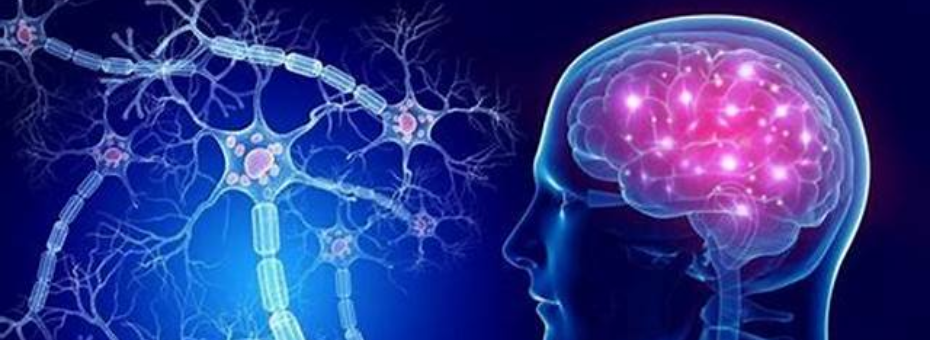In today’s fast-paced world, stress, anxiety and mood disorders are increasingly common and often stem from imbalances in neurotransmitters, the chemical messengers in the brain responsible for regulating mood, sleep, appetite and more. While pharmaceutical interventions may be helpful, many people are seeking natural ways to support their mental well-being. Fortunately, there are several nutraceuticals containing natural ingredients that can help balance neurotransmitters, promoting a sense of calm and improved mood. Let’s explore some of these natural remedies.
GABA (Gamma-Aminobutyric Acid)
Supplemental GABA (gamma-aminobutyric acid) supports neurotransmitter balance naturally by acting as an inhibitory neurotransmitter in the central nervous system. When GABA binds to its receptors on neurons, it inhibits the transmission of nerve impulses, effectively reducing the activity of excitatory neurotransmitters like glutamate. This inhibition helps calm the nervous system, promoting relaxation and reducing feelings of stress and anxiety. By modulating neurotransmitter activity in this way, supplemental GABA helps restore balance to the brain's chemical signaling pathways, supporting overall neurotransmitter equilibrium. 1,2 Look for GABA supplements derived from natural sources for optimal effectiveness.
Taurine
Taurine, a vital amino acid with various functions in the body, plays a significant role in balancing neurotransmitters. Acting as a neuromodulator, taurine helps to stabilize cell membranes and regulate the activity of neurotransmitters such as GABA and glutamate. By enhancing the inhibitory effects of GABA, taurine contributes to calming the nervous system and reducing neuronal excitability, which can alleviate anxiety and promote relaxation.3,4 Additionally, taurine’s ability to modulate glutamate prevents overstimulation of the brain, which is linked to excitotoxicity and various neurological conditions. 5 Through these mechanisms, taurine supports a balanced and harmonious neural environment, promoting overall mental health, improved sleep quality and cognitive function.
5-HTP (5-Hydroxytryptophan)
5-HTP (5-Hydroxytryptophan) is a naturally occurring amino acid and a direct precursor to serotonin, a key neurotransmitter that plays a vital role in regulating mood, sleep, and appetite. By crossing the blood-brain barrier more efficiently than its precursor L-tryptophan, 5-HTP supports serotonin synthesis in the brain, which helps to balance neurotransmitter levels and promote emotional well-being. 6 When serotonin levels are optimal, it helps to reduce symptoms of anxiety and depression, improve sleep quality, and support a positive mood. This balancing effect on neurotransmitters makes 5-HTP an effective supplement for enhancing mental health and overall brain function.
Mucuna pruriens Extract
Mucuna pruriens extract, derived from the seeds of the tropical legume, is a rich natural source of L-DOPA, a direct precursor to dopamine. Dopamine is a crucial neurotransmitter involved in regulating mood, motivation, and reward. By providing a ready supply of L-DOPA, Mucuna pruriens helps to boost dopamine levels in the brain, supporting a healthy balance of neurotransmitters.7,8 This increase in dopamine can enhance cognitive function, improve mood, and alleviate stress. Additionally, the extract contains other bioactive compounds that support overall neural health, making Mucuna pruriens a valuable supplement for promoting mental well-being and maintaining neurotransmitter balance.
L-Tyrosine
L-tyrosine is an amino acid that plays a critical role in the production of key neurotransmitters such as dopamine, norepinephrine, and epinephrine, which are essential for regulating mood, alertness, and stress response. By acting as a precursor in the synthesis of these catecholamines, L-tyrosine helps maintain a healthy balance of neurotransmitters in the brain.9 This balance is crucial for cognitive function, emotional stability, and effective stress management. During periods of stress or intense mental activity, the body's demand for these neurotransmitters increases, and L-tyrosine supplementation can help support their production, thereby improving mental clarity, focus, and resilience against stress.10,11 Its ability to enhance neurotransmitter synthesis makes L-tyrosine an important supplement for promoting overall mental health and cognitive performance.
L-Theanine
L-theanine, an amino acid commonly found in tea leaves, is renowned for its ability to promote relaxation without causing drowsiness. It works by crossing the blood-brain barrier and influencing neurotransmitter levels in the brain, particularly those associated with stress and mood regulation. L-theanine increases the levels of GABA, an inhibitory neurotransmitter that induces a state of calm and reduces anxiety. It also boosts the levels of dopamine and serotonin, which are key neurotransmitters responsible for mood, focus, and relaxation. 12 By enhancing alpha brain wave activity, L-theanine fosters a state of wakeful relaxation, supporting a balanced and peaceful mind. 13,14 This unique profile makes L-theanine a valuable supplement for managing stress, improving sleep quality, and supporting overall neurotransmitter balance, contributing to enhanced mental well-being and cognitive function.
Phosphatidylserine
Phosphatidylserine is a phospholipid found naturally in high concentrations in the brain, playing a crucial role in maintaining cellular function and neurotransmitter balance. This compound supports cognitive health by facilitating the transmission of signals between neurons, thereby enhancing memory, focus, and overall brain function.15 Phosphatidylserine also helps regulate the release of neurotransmitters such as dopamine and acetylcholine, which are essential for mood and cognitive processes.16 Additionally, it contributes to the maintenance of a healthy stress response by modulating cortisol levels, the body’s primary stress hormone.17 By supporting neurotransmitter production and protecting brain cells from oxidative damage, phosphatidylserine serves as a powerful supplement for improving mental clarity, reducing stress and promoting overall brain health.
.png?sfvrsn=48486602_2)
The Bottom Line
Balancing neurotransmitters naturally can have profound effects on mental well-being, helping to alleviate symptoms of stress, anxiety, and depression. By incorporating supplements containing natural ingredients like GABA, 5-HTP, Mucuna pruriens extract, L-tyrosine, L-theanine, taurine, and phosphatidylserine, along with adopting healthy lifestyle habits, you can support optimal brain function and emotional resilience.

Joanna Matras-Godziejewicz, ND, PhD is a licensed practitioner dedicated to holistic medicine. Inspired by psychosomatic medicine and the intricacies of the human brain, she earned her PhD in Neuroscience from Rush University Medical College in 2013, specializing in neurodegenerative disorders. Driven by a passion for the inter-relationship of the body's organs and systems, Joanna discovered Naturopathic Medicine. A graduate of the National University of Health Sciences in Lombard, Illinois, she holds a Naturopathic Doctorate. With a focus on neurology and endocrinology, Joanna has been in private practice since 2020, empowering patients to understand their bodies and embrace the power of functional medicine. Her clinical expertise in treating hormone-related issues has led to her current role as the Clinical Brand Manager for the Hormone Health and SOS lines.
References
- Abdou, A. M., Higashiguchi, S., Horie, K., Kim, M., Hatta, H., & Yokogoshi, H. (2006). Relaxation and immunity enhancement effects of gamma-aminobutyric acid (GABA) administration in humans. BioFactors, 26(3), 201-208. doi:10.1002/biof.5520260305.
- Möhler, H. (2006). GABA(A) receptor diversity and pharmacology. Cell and Tissue Research, 326(2), 505-516. doi:10.1007/s00441-006-0261-7.
- Huxtable, R. J. (1992). Physiological actions of taurine. Physiological Reviews, 72(1), 101-163. doi:10.1152/physrev.1992.72.1.101.
- Wu, J. Y., Prentice, H., & Lee, H. H. (2010). Role of taurine in the central nervous system. Journal of Biomedical Science, 17(1), S1. doi:10.1186/1423-0127-17-S1-S1.
- Albrecht, J., Zielińska, M., & Norenberg, M. D. (2010). Glutamine as a modulator of ammonia neurotoxicity: A critical appraisal. Neurochemistry International, 56(3), 367-374. doi:10.1016/j.neuint.2009.11.001.
- Turner, E. H., Loftis, J. M., & Blackwell, A. D. (2006). Serotonin a la carte: Supplementation with the serotonin precursor 5-hydroxytryptophan. Pharmacology & Therapeutics, 109(3), 325-338. doi:10.1016/j.pharmthera.2005.07.001.
- Misra, L., & Wagner, H. (2007). Extraction of bioactive principles from Mucuna pruriens seeds. Indian Journal of Biochemistry & Biophysics, 44(1), 56-60.
- Katzenschlager, R., Evans, A., Manson, A., et al. (2004). Mucuna pruriens in Parkinson's disease: A double blind clinical and pharmacological study. Journal of Neurology, Neurosurgery & Psychiatry, 75(12), 1672-1677. doi:10.1136/jnnp.2003.028761.
- Fernstrom, J. D., & Fernstrom, M. H. (2007). Tyrosine, phenylalanine, and catecholamine synthesis and function in the brain. The Journal of Nutrition, 137(6 Suppl 1), 1539S-1547S. doi:10.1093/jn/137.6.1539S.
- Neri, D. F., Wiegmann, D., Stanny, R. R., et al. (1995). The effects of tyrosine on cognitive performance during extended wakefulness. Aviation, Space, and Environmental Medicine, 66(4), 313-319.
- Deijen, J. B., Wientjes, C. J., Vullinghs, H. F., et al. (1999). Tyrosine improves cognitive performance and reduces blood pressure in cadets after one week of a combat training course. Brain Research Bulletin, 48(2), 203-209. doi:10.1016/s0361-9230(98)00146-8.
- Kimura, K., Ozeki, M., Juneja, L. R., & Ohira, H. (2007). L-Theanine reduces psychological and physiological stress responses. Biological Psychology, 74(1), 39-45. doi:10.1016/j.biopsycho.2006.06.006.
- Nathan, P. J., Lu, K., Gray, M., & Oliver, C. (2006). The neuropharmacology of L-theanine (N-ethyl-L-glutamine): A possible neuroprotective and cognitive enhancing agent. Journal of Herbal Pharmacotherapy, 6(2), 21-30. doi:10.1080/J157v06n02_02.
- Nobre, A. C., Rao, A., & Owen, G. N. (2008). L-theanine, a natural constituent in tea, and its effect on mental state. Asia Pacific Journal of Clinical Nutrition, 17(S1), 167-168.
- Glade, M. J., & Smith, K. (2015). Phosphatidylserine and the human brain. Nutrition, 31(6), 781-786. doi:10.1016/j.nut.2014.10.014.
- Maggioni, M., Picotti, G. B., Bondiolotti, G., et al. (1990). Effects of phosphatidylserine therapy in geriatric patients with depressive disorders. Acta Psychiatrica Scandinavica, 81(3), 265-270. doi:10.1111/j.1600-0447.1990.tb06489.x.
- Benton, D., & Donohoe, R. (1999). The influence of phosphatidylserine supplementation on mood and heart rate when faced with an acute stressor. Nutritional Neuroscience, 2(5), 307-312. doi:10.1080/1028415x.1999.11747289.




